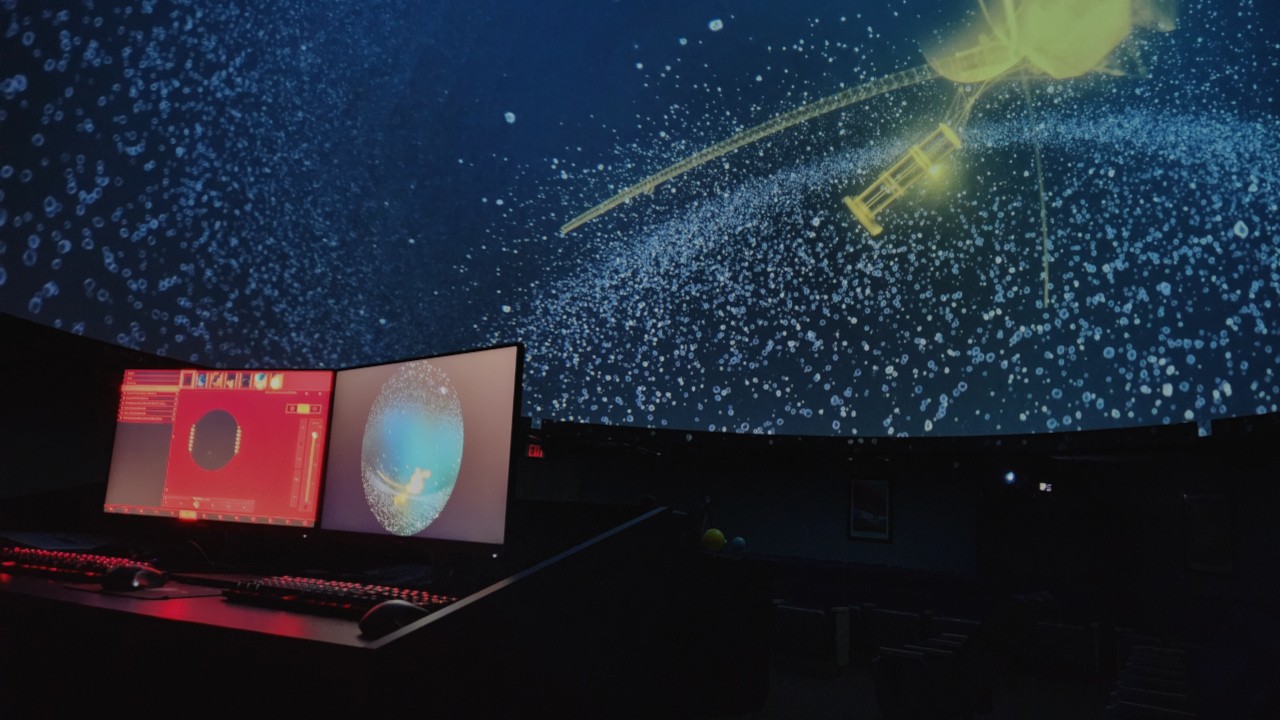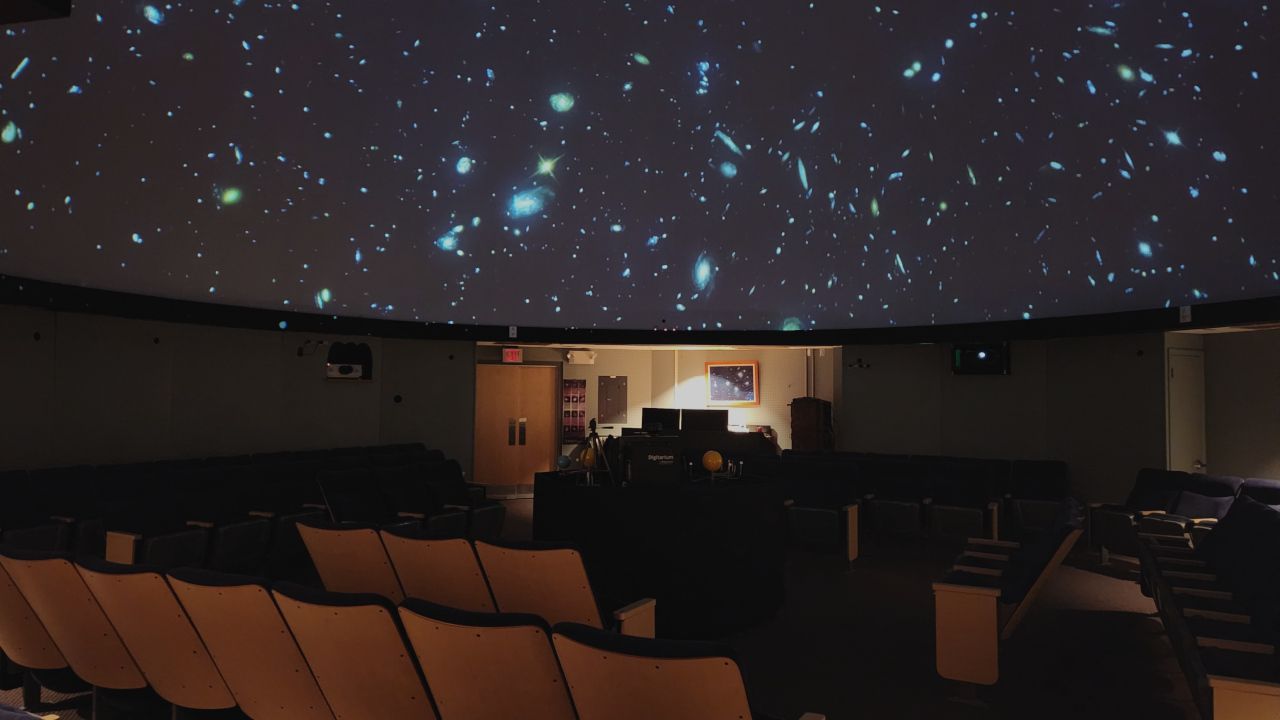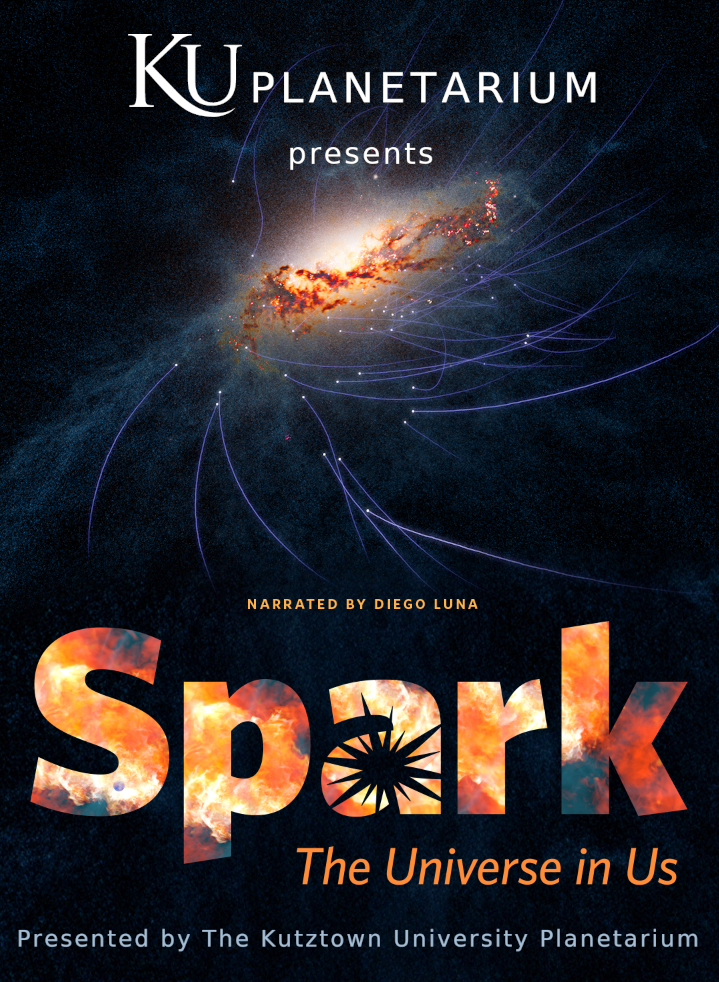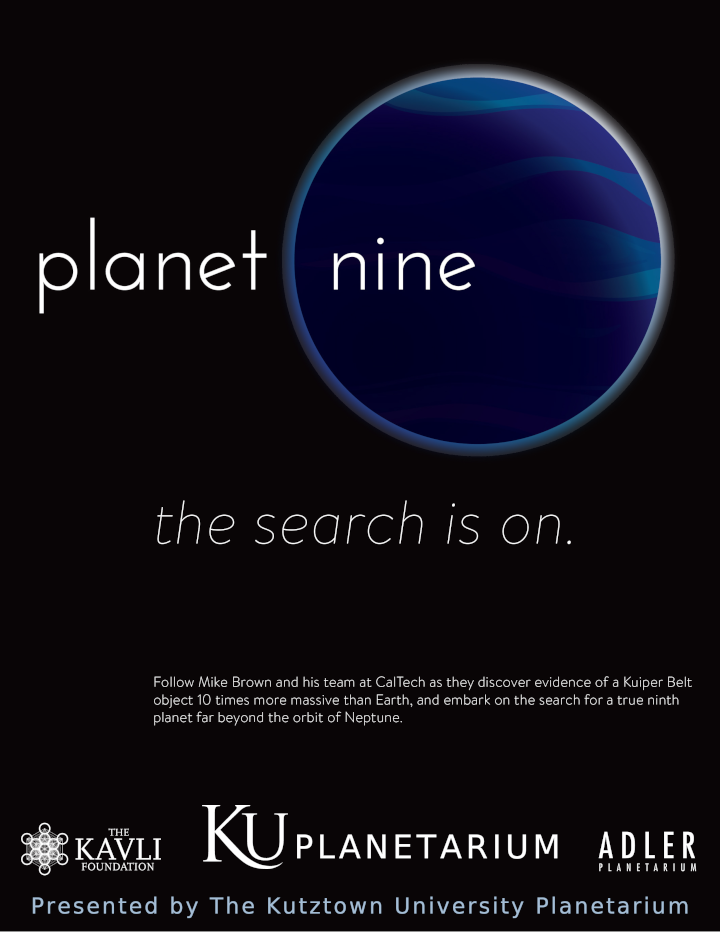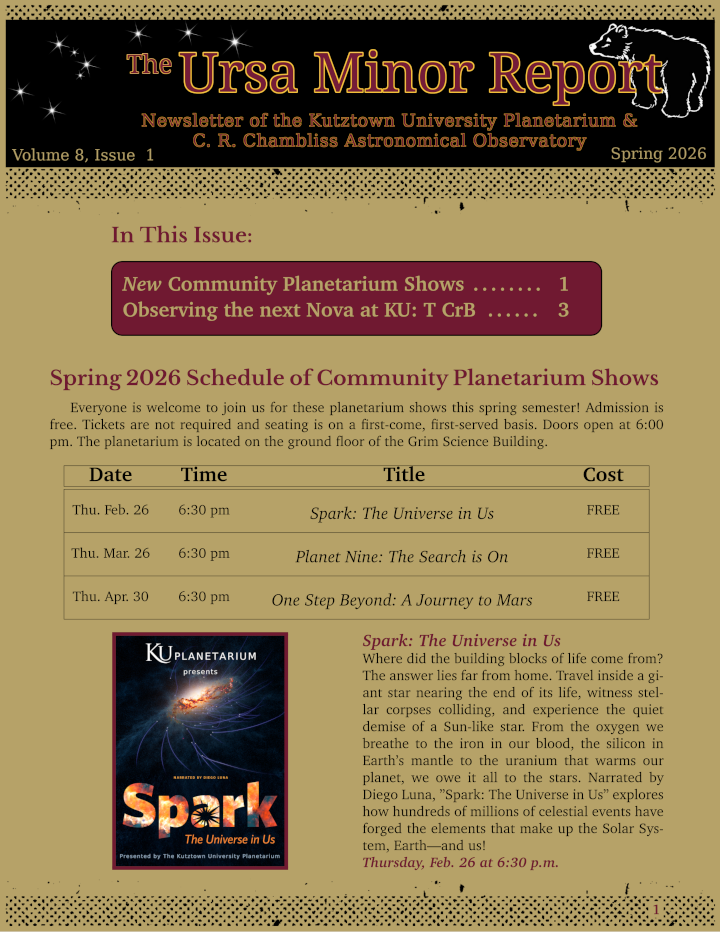Kutztown University Planetarium
The Kutztown University Planetarium is located on the ground floor of the Grim Science Building. The planetarium is used for the university's astronomy outreach program and for introductory & advanced astronomy projects. The KU Planetarium features a state-of-the-art, full-dome digital projection system with surround sound and a full-color LASER light system.
Community shows
Community planetarium shows are FREE and open to the public.
Spring 2026 Community Planetarium Show Schedule:
DATE |
TIME |
TITLE |
COST |
| Thu. Feb. 26 | 6:30 pm* | Spark: The Universe in Us | FREE* |
| Thu. Mar. 26 | 6:30 pm* | Planet Nine: The Search is On | FREE* |
| Thu. Apr. 30 | 6:30 pm* | One Step Beyond: A Journey to Mars | FREE* |
* Doors open at 6:00pm. Seating is first-come, first-served.
** Admission to musical LASER light shows costs $5.00 and proceeds support student research projects at the C. R. Chambliss Astronomical Observatory (CRCAO).
More About the Shows:
-
Spark: The Universe in Us
Where did the building blocks of life come from? The answer lies far from home. Travel inside a giant star nearing the end of its life, witness stellar corpses colliding, and experience the quiet demise of a Sun-like star. From the oxygen we breathe to the iron in our blood, the silicon in Earth’s mantle to the uranium that warms our planet, we owe it all to the stars. Narrated by Diego Luna, ”Spark: The Universe in Us” explores how hundreds of millions of celestial events have forged the elements that make up the Solar System, Earth—and us!
-
Planet Nine: The Search is On
Journey to the icy outskirts of our solar system in Planet Nine, a planetarium show that follows the search for a hidden giant beyond Neptune. From the discoveries of Pluto, Eris, and other distant worlds to the tantalizing orbital clues that suggest an unseen planet, Caltech astronomer Mike Brown and his team take us to mountaintop observatories in their quest to find the elusive “Planet Nine.” The program at KU's planetarium includes a short introduction to the upcoming Vera C. Rubin Observatory, whose sweeping sky survey may soon reveal this mysterious world.
-
One Step Beyond: A Journey to Mars
One small step was just the beginning. Now, we take one step beyond - driven by curiosity, bound for Mars, and ready to write the boldest chapter in human exploration.
Experience the thrill of launch, the challenges of life in space, the cutting-edge technology of NASA’s Artemis program, and the search for life that could transform how we see our planet, our past, and our place in the cosmos - as we prepare for humanity’s biggest step yet: setting foot on Mars.
The Ursa Minor Report
The Ursa Minor Report is the newsletter of the KU Planetarium and the C. R. Chambliss Astronomical Observatory at KU.
The current issue is available here: Volume 8 Issue 1 (Spring 2026)
-
Archive of the Ursa Minor Report
- Volume 8 Issue 1 (Spring 2026)
- Volume 7 Issue 1 (Fall 2025)
- Volume 6 Issue 1 (Spring 2024 - Eclipse Edition)
- Volume 5 Issue 1 (Fall 2023)
- Volume 4 Issue 1 (Spring 2018)
- Volume 3 Issue 1 (Spring 2017)
- Volume 2 Issue 2 (Fall 2016)
- Volume 2 Issue 1 (Spring 2016)
- Volume 1 Issue 2 (Fall 2015)
- Volume 1 Issue 1 (Spring 2015)
Cosmic classroom
Cosmic Classroom is a new educational outreach program for schools. Our modern high-resolution projection system, comfortable seating, and years of professional experience make the Kutztown University Planetarium an ideal destination for your school's astronomy field trips. We have educational programs suitable for students of all ages, from elementary through high school.
Membership provides the following:
- Preferred scheduling of annual visits to the KU Planetarium.
- Up-to-date educational & entertaining planetarium shows.
- Question & Answer time with a professional astrophysicist.
- Programming to complement your educational goals.
- Introduction to our on-campus research observatory.
- Optional campus tours for interested high school groups.
Cosmic Classroom is fully booked for the Spring semester, and we are now scheduling visits for Fall 2026!
Please use this form to apply for the Cosmic Classroom program.
Directions to the Planetarium
The Kutztown University Planetarium is located on the ground floor of the Grim Science Building and can be found using this map.







